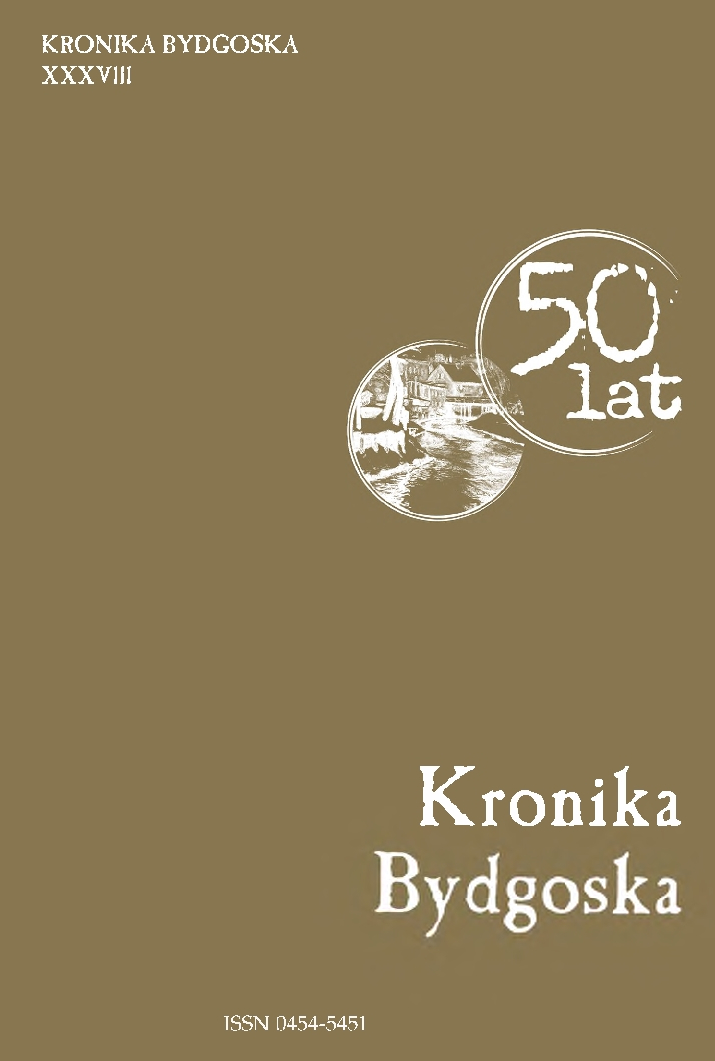Ewangelicy w Bydgoszczy
DOI:
https://doi.org/10.34767/KB.2017.38.05Słowa kluczowe:
Bydgoszcz, Kościoły ewangelickie, ewangelicy, świątynie ewangelickie, XIX i XX wiekAbstrakt
Protestants in Bydgoszcz have been present since the 16th century. Their heritage is part of the history of the city. Their increasing numbers and expanding architecture, which has been an important part of Bydgoszcz cityscapes, took place when the area was annexed by Prussia. In that time, Germans were the ethnic majority in the city, primarily Protestants. Numerous religious associations, youth organizations and groups, trade unions as well as care, social and medical institutions played an important role in lives of parishioners and individual communities. The situation related to denominations and nationalities had significantly changed after the return of Bydgoszcz to Poland. At that time, the Protestants became a religious minority, but they continued to be an important part of the city. World War II, especially its end, brought new changes. After the departure of Germans from Bydgoszcz, their churches became empty. They were handed over for administration of local Roman Catholic parishes. The Parishes of St. Andrew Bobola, St. Joseph the Carpenter, Divine Mercy, Saints Peter and Paul, and St. Adalbert have been taking advantage of their Protestant legacy to this day, treating it as their own. Only the Church of the Savior on Warszawska Street has been used since June 1945 by the parish of the Evangelical Church of the Augsburg Confession, continuing Reformation traditions in the city on the Brda River.

